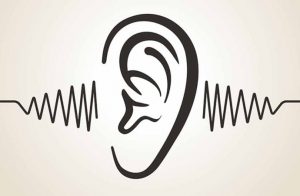 I’m sure you’ve heard someone speaking before. How well did you understand what he/she was saying? Were you able to decode the message that is been passed across to you? Listening to people when they communicate to you is one thing, and understanding what they are saying is another ball game entirely. Sometimes we get fed up listening to what people are saying to us, so what is the right thing to do? We have to know that listening to people when they communicate to us is the highest respect we can offer them at the moment.
I’m sure you’ve heard someone speaking before. How well did you understand what he/she was saying? Were you able to decode the message that is been passed across to you? Listening to people when they communicate to you is one thing, and understanding what they are saying is another ball game entirely. Sometimes we get fed up listening to what people are saying to us, so what is the right thing to do? We have to know that listening to people when they communicate to us is the highest respect we can offer them at the moment.
11 steps to improve your listening skills
1. A good listener is attentive. They make good eye contact, don’t interrupt what the other person is saying and show an interest in what is being communicated. There’s always something incredible you can hear in anyone’s story.
2. A good listener does not look over the shoulder of the person that’s speaking, waiting for someone more interesting to come along.
3. A good listener does not check their phone or tablet in the middle of a conversation, when someone is sharing with them.
4. A good listener is not waiting for their chance to get a word in, treating the ‘period of listening’ as a pause in their ‘monologue.’ Being so focused on trying to get ones view over is insensitive and misses the real value in the conversation.
5. A good listener uses positive body language; leaning forward and showing an enthusiastic, relaxed nature. They don’t fidget, cross arms, look elsewhere or express inappropriate shock or disbelief at what’s shared.
6. A good listener does not hurry somebody, but asks good questions to guide the sharing. They guide and help shape what’s being shared, but if the other person feels cut off or squashed they’ve failed.
7. A good listener does not approach a conversation with prejudice, expecting to know what’s going to come out of the speaker’s lips. They don’t listen with a pre-formed opinion but attempt to have an open mind to what’s being communicated. It’s amazing how much time is wasted with the belief that people understand what someone means without taking the effort and time to listen.
8. A good listener cares. They show empathy for what the other person has to say. It’s genuine, authentic and comes from a place of truthful concern.
9. A good listener identifies areas of agreement with the speaker whilst avoiding the cliché statement: “I know exactly how you feel.” Because you don’t. It ends up sounding insensitive, trite or self-centred. Everyone loves to be truly understood. No one likes to be patronised.
10. A good listener remembers. They remember and follow up conversations wherever possible. They treat what is shared with respect and where appropriate ongoing interaction.
11. A good listener knows how to treat what is shared with confidentiality. They are trustworthy and sensitive with information and never look to use anything that is shared for any purpose other then good.
So take particular note of the following
A bad listener:
- always interrupts
- jumps to conclusions
- makes moral judgments
- keeps finishing the speaker’s sentences
- is inattentive
- is always writing and taking notes
- changes the subject
- is unresponsive
- is impatient
- can’t control emotions
- “fidgets” nervously
In conclusion, good speakers don’t always make the best listeners. But a speaker, who knows how to be a good listener, has a profound impact on someone who simply likes the sound of their own voice. Good listeners earn the right to speak, because they are sharing more than their own experiences.
References (links)
- “Listening Skills – 11 Steps to Become a Good Listener” by Caleb Storkey
- “How to Listen” by wikiHow
- “Listening Skills: Good listening versus poor listening” by Steve Roche
- “The GOOD vs. The BAD: an index of listening traits”
- “Reasons Why You Need Good Listening Skills” by Naldz Graphics








You must be logged in to post a comment.